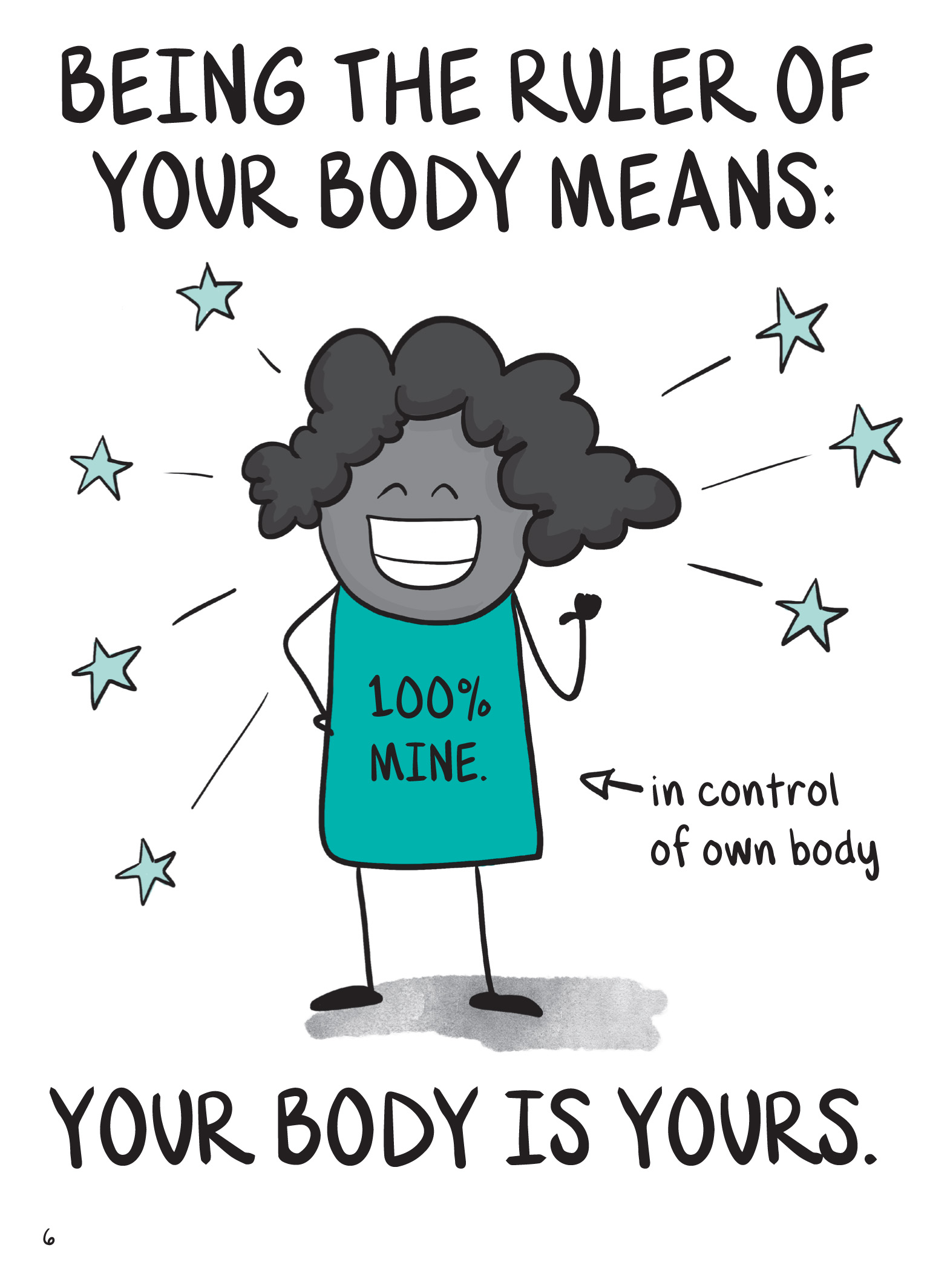 Respect by Rachel Brian is inspiring, informative and entertaining, and essential reading for all 7+ children, their parents and carers. With the issue of consent now on the curriculum for primary and secondary schools, this important topic is out in the open - and Respect is an ideal introduction. Rachel is well known for her involvement in the trailblazing 'Tea Consent' video which went viral, translated into over 20 languages and has had more than 150 million views worldwide.
Respect by Rachel Brian is inspiring, informative and entertaining, and essential reading for all 7+ children, their parents and carers. With the issue of consent now on the curriculum for primary and secondary schools, this important topic is out in the open - and Respect is an ideal introduction. Rachel is well known for her involvement in the trailblazing 'Tea Consent' video which went viral, translated into over 20 languages and has had more than 150 million views worldwide.
Despite being busy with the publication of Respect this week, Rachel found time to answer a few questions for us.
What was the inspiration behind your new book, Respect?
This book was inspired by my viral video "Consent for Kids" which has been translated into more than 15 languages.
I made the video in response to an experience my daughter had in first grade. Another child, who was not a friend, kissed her without her consent and she came home feeling very upset. She hadn't told the teacher or said anything to the other child, and was just feeling very sad and embarrassed about it. I decided to talk to the teacher, thinking it might be a teachable moment for the class to talk about consent and how kids have the right to their own bodies. Instead, the teacher yelled at the other child's mother and repeatedly told me "no touching allowed in first grade!". My daughter and I talked about what a poor response that was and how it was ok if she wanted to hug her friends as long as they both agreed. We decided to make the video together (My daughter is the voice over for that video). While Tea Consent was aimed at an adult/teen audience, Consent for Kids was targeted to younger folks. I was surprised to see how strong a need there was for this material for kids. I was inundated with requests for translations from around the world. I think that there is a global interest in helping children understand consent, so they know they have the right to their own bodies, and so they learn that others also have that same right. We can see that sexual violence and domestic violence are prevalent all over the world and are a huge public health and human rights issue. Helping kids learn to state their boundaries and listen to the boundaries of others is an important step in changing those statistics.
As the issue of consent is now part of the curriculum, how do you envisage Respect will be useful to teachers?
I think it's fantastic that consent is now part of the curriculum. As a former teacher, I know that issues around consent come up in the classroom all the time. Kids are learning and testing boundaries for themselves and others and may not always be skilled at practicing consent. Teachers can talk openly about their goals for kids and use the book to discuss funny, non-threatening scenarios that get to the heart of what it means for people to have bodily autonomy. Consent is a concept, but it's also a practice. Just like math, or any other subject, you can understand it in theory, but you have to problem solve with it a lot to get good at it. I hope teachers find that this book gives them a road map to start those important conversations that shape the culture of their classroom, their school, and ultimately, our society.
Why did you decide to use humour to get across a very important and serious topic?
The tagline for my animation company, Blue Seat Studios, is "Big Ideas Through Humor". What we've found through Tea Consent and other videos is that genuine humour often makes people more open to challenging entrenched ideas. No one likes getting preached to, or made to feel ashamed, and humour can make people feel less defensive. However, I'm very selective about the kind of humour I use in projects. Often in mainstream comedy a person is mocked for something that makes them weaker or different. The humour I employ typically makes fun of perpetrators. The goal is for the reader or viewer to think "that's so silly, of course I wouldn't do that!". At the same time, I always want to support survivors, and make sure it's clear to kids (and adults) that they aren't responsible for the bad behavior of others.
Can you talk us through the process of creating an animated book?
I start with rough sketches and funny scenarios that I think illustrate the key concepts, and build off of those.
When I'm animating videos the content isn't as linear as it is in books, so it takes some time (and help from my fantastic editors at Hachette) to mold the ideas into a linear format. From there, it's a lot of redrawing, scrapping ideas that didn't pan out and always looking for ways to add more humour and depth to the content. One of my guiding beliefs is that kids are really really smart, and while the language of the book is simple, I would never condescend to kids. I believe children can grasp complex ideas if they're presented in a down to earth, funny way that respects their intellect.
The 'Tea Consent' video has been hugely successful - have you plans to tackle more subjects in the same way?
Absolutely. Blue Seat Studios, my animation company, works with all kinds of organizations to create funny, impactful content. We've done work on child sextortion, human rights defense, college sexual assault prevention, inclusive healthcare initiatives and many more important topics. With each project, we try to find the perfect tone - one that honors the gravity of the topic and supports people who have been impacted, but also pokes fun at people or beliefs that harm others.
 Thanks Rachel - and good luck with Respect and your future projects.
Thanks Rachel - and good luck with Respect and your future projects.
You can watch the " target="_blank" rel="noopener">Consent for Kids video " target="_blank" rel="noopener">here and go to our Respect book page to read our full expert review and download the first few pages of Respect - Consent, Boundaries and Being in Charge Of You by Rachel Brian.
.png)


.jpg)
Comments (0)
Leave A Reply
You must be logged in to post a comment.